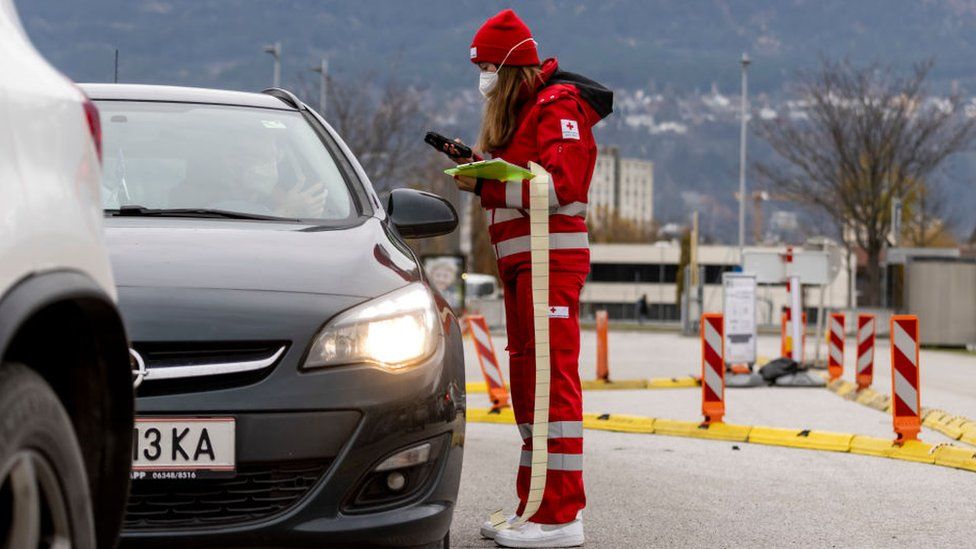

She added the Covid situation in the country is “dramatic” after new daily confirmed cases increased by more than 65,000 - the highest figure since the pandemic began.Ĭhristmas splurge is the gift that keeps on giving īig surge in Coronavirus cases across EU German Chancellor Angela Merkel said: “We need to quickly put a brake on the exponential rise.” The majority of Germany currently exceeds this threshold. The new rules mean in areas with a hospitalisation rate of more than three Covid patients per 100,000 people over the past seven days, only the vaccinated and those who have recovered from the virus will be allowed to access public spaces like sporting events, cultural shows and restaurants. Officials in the eastern state of Saxony are also poised to impose an up to three-week lockdown. The new measures will take efffect once Germany’s 16 states incorporate them into existing rules, likely in the coming days.Lawmakers in Germany banned unvaccinated people from using public transport on Friday as new infections surpassed 50,000 for the third day running.Įmployees will need to prove they are vaccinated, have recovered from Covid or show a negative test to access communal workplaces. Each year, hospitals treat hundreds of people with serious injuries because of mishandled fireworks. To reduce the pressure on hospitals over the festive period, the sale of fireworks traditionally set off during New Year’s in Germany will be banned. The Robert Koch Institute also reported 388 new deaths from COVID-19, taking the total since the start of the pandemic to 102,178.

Germany’s disease control agency reported 73,209 newly confirmed cases Thursday. Some hospitals in the south and east of the country have already transferred patients to other parts of Germany because of a shortage of intensive care beds.Īgreeing what measures to take has been complicated by Germany’s political structure - with the 16 states responsible for many of the regulations - and the ongoing transition at the federal level.

The rise in COVID-19 cases over the past several weeks and the arrival of the new omicron variant have prompted warnings from scientists and doctors that medical services in the country could become overstretched in the coming weeks unless drastic action is taken. “If we had a higher vaccination rate, we wouldn’t be discussing this now,”he said. WHO: Omicron variant cases highlight vaccine inequity around the world Finance Minister Olaf Scholz, who is expected to be elected chancellor by a center-left coalition next week, has also backed a general vaccine mandate, but favors letting lawmakers vote on the issue according to their personal conscience rather than party lines. There have been large protests against pandemic measures in the past in Germany and the vaccine mandate is likely to be opposed by a minority, though opinion polls show most Germans are in favor.Ģ:04WHO: Omicron variant cases highlight vaccine inequity around the world If passed, it could take effect as early as February, Merkel said, adding that she would have voted in favor of the measure if she were still a member of parliament.Ībout 68.7 per cent of the population in Germany is fully vaccinated, far below the minimum of 75 per cent the government is aiming for. She said parliament would debate the proposal with input from the country’s national ethics committee. Merkel herself backed the most contentious proposal of imposing a general vaccine mandate. She said officials also agreed to require masks in schools, impose new limits on private meetings and aim for 30 million vaccinations by the end of the year - an effort that will be boosted by allowing dentists and pharmacists to administer the shots. “The situation in our country is serious,” Merkel told reporters in Berlin, calling the measure an “act of national solidarity.” Speaking after a meeting with federal and state leaders, Merkel the measures were necessary in light of concerns that hospitals in Germany could become overloaded with people suffering COVID-19 infections, which are more likely to be serious in those who haven’t been vaccinated. German Chancellor Angela Merkel said Thursday that people who aren’t vaccinated will be excluded from nonessential stores, cultural and recreational venues, and parliament will consider a general vaccine mandate as part of efforts to curb COVID-19 infections that again topped 70,000 newly confirmed cases in a 24-hour period.


 0 kommentar(er)
0 kommentar(er)
